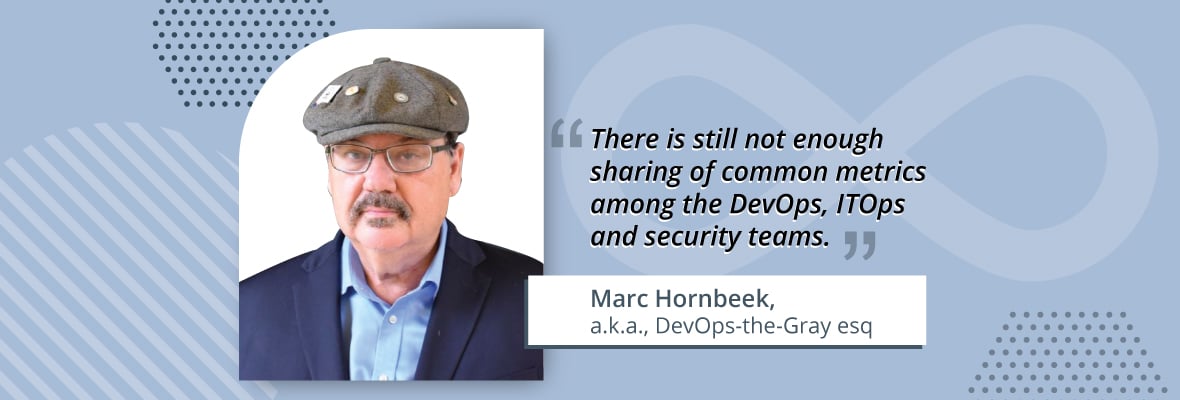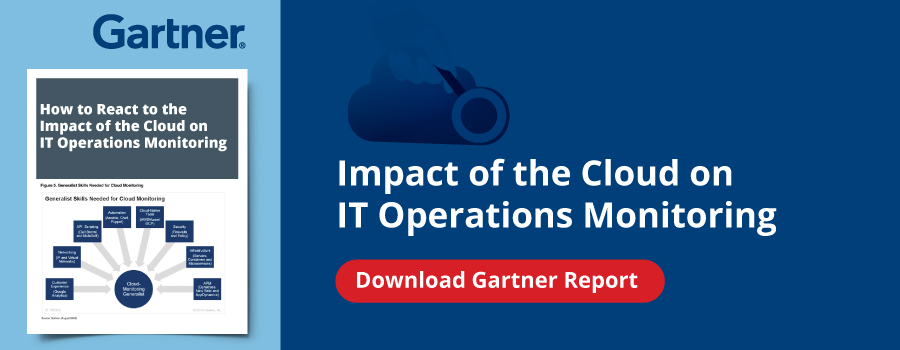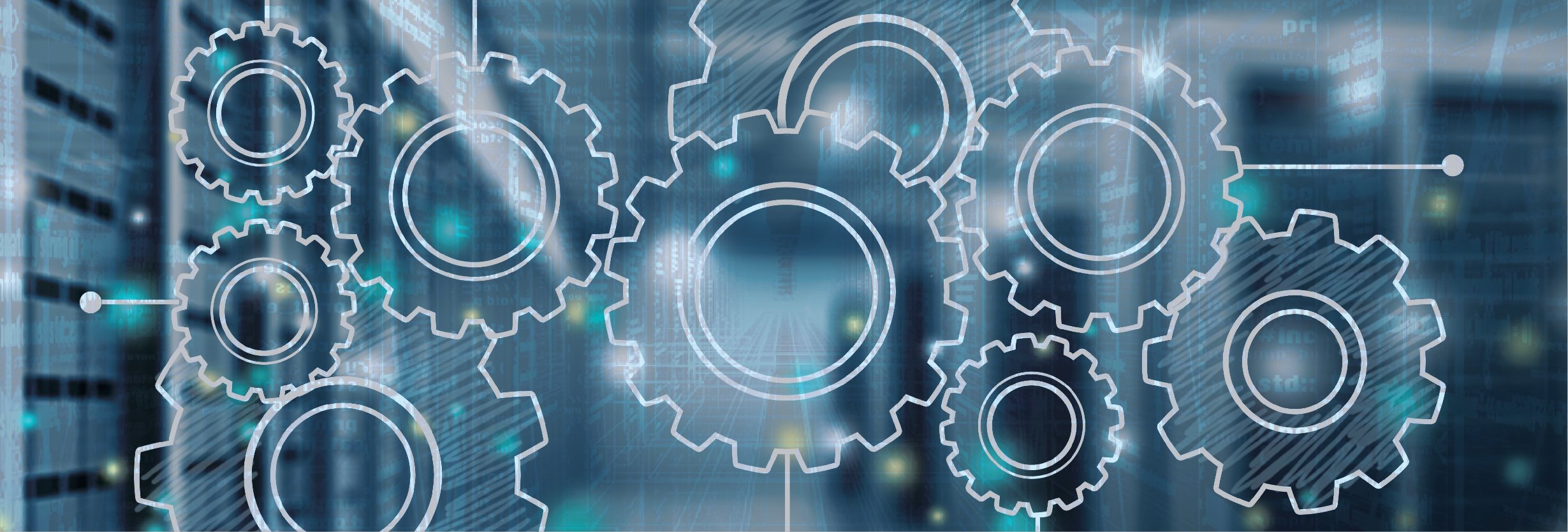Marc Hornbeek is a DevOps consultant, author and advisor who playfully calls himself “DevOps the Gray” due to his 40-plus years of work in software development. We spoke with him about the convergence of IT operations and DevOps and what it means for the IT organization. Follow Marc on Twitter.
OpsRamp: Tell us a little about your work in DevOps?
MH: I’ve been doing DevOps for 45 years now, even though it wasn’t a word before 2010. My views on DevOps and ITOps are primarily centered on the evolution, growth and merging of DevOps, DevSecOps and site reliability engineering (SRE) practices. Part of my consulting work is that I deliver an assessment service to help organizations understand the current and future state of their practice and build a roadmap. I don’t do hands-on coding anymore. I really enjoy working with people.
OpsRamp: Is DevOps accelerating faster now, given the pandemic and its impact on IT priorities and digital acceleration?
MH: There is no question that DevOps was already on a trajectory to becoming more important as organizations saw the value, and the pandemic accelerated that. With all the remote work, DevOps allows developers and those in the value stream to work more efficiently. There’s research showing that 70% of enterprises are growing their DevOps projects right now. Without DevOps, you have disconnected value streams and that makes it difficult to do these jobs remotely. The automation and efficiency of DevOps makes it a perfect fit for remote work. It’s hard to get a whiteboard and work things out so if a lot of these processes are automated, it’s easier.
OpsRamp: How and why are DevOps and ITOps disciplines merging?
MH: The heart of DevOps is about automating and getting continuous quality. This has been an ongoing struggle for many years. But getting the quality processes under control is always a starting point. Next, security has to be built in, so you need to think about security as a product more than a governance process. Then finally you have to get DevOps compatible with ITOps, because there is overlap between the two areas as relates to delivering quality services. The site reliability engineer (SRE) is the model to complement that.
OpsRamp: Are tools and roles merging?
MH: People often think about DevOps as moving from the left to the right, and it approaches the problem of product delivery with a focus on accelerating development. DevOps finishes at the point of deployment and Ops, which works from the right to left, then takes over. The two do meet in the middle but at some point does one consume the other? I don't see that happening anytime soon. We need compatible tools so that people can speak the same language and share common information. But these are definitely different skills. The common practices in the middle are automation and process measurement. Ops looks at customer-oriented service indicators while DevOps look more at reliability of pipelines and what is required to make delivery happen.
OpsRamp: Are DevOps and ITOps roles sharing workflows and collaborating more these days?
MH: In the most efficient organizations, they are trying to get alignment on tools. In large enterprises, you never have agreement on this and some applications do have special requirements. But to recognize the economies of scale and scope, managers try to reduce the number of tools to share data and costs. While DevOps has crossed the chasm in the enterprise, there is still not enough sharing of common metrics among the DevOps, ITOps and security teams. This makes things very complex at times. When I work with clients, I conduct a 27-factor assessment and there are entire practice areas for each of those. With DevOps, there’s a lot that you’ve got to get right and you cannot do it all at once.
OpsRamp: How is the SRE role different than the traditional NOC manager or IT operator role?
MH: The SRE is the new Ops role. It complements DevOps in that it's a fast-paced very technical operations job. Measurement is key; SLO/SLIs are the core of the SRE’s work. These individuals also concentrate on work sharing, post-mortems, toil reduction practices, and antifragility–which is about proactively looking for problems using fire drills and chaos engineering. SREs intersect around the increasing importance of applying customer and business-oriented SLOs/SLIs as the management guideposts to set direction and stay the course towards business goals in a digitally-enabled enterprise.
OpsRamp: Does this mean that traditional IT ops roles are going away?
MH: Ultimately the sysadmins are going away, because they are being replaced by algorithms. We're not going to have people looking at screens figuring out what's going on, because software can do that now. Teams will be smaller with a few SREs who are developing those algorithms. Take Netflix, a $25 billion company with 200 million customers. This company has only 80 SREs managing 190 countries and billions of monitoring points.
OpsRamp: What does DevOps/ITOps convergence mean for IT leaders?
MH: IT leaders have a large role to play here. They need to create a culture that grows experts and rewards them and trains well. They want to get to mature levels of DevOps which is continuous improvement, the so-called Third Way of DevOps, through mastering automated flows and improvements driven by continuous feedback. Doing this requires not only leadership but investment. People in these roles have high salaries and are in high demand and they need to be engaged. The half life of a great engineer used to be five years but now it's two years. It’s critical to keep them motivated and interested in the work, or else they will leave and easily find a great job somewhere else.
OpsRamp: Any thoughts on evolving software development practices?
MH: I would say that more than anything, training and upskilling is the area of focus. There’s not really a development practice that is dominant but what is dominant is to be continually evolving our skills. I recently identified 18 different technologies which influence the daily life of DevOps engineers, as part of research that I did for a DevOps Institute Skill Book. Support continuous learning in your organization and be open to change. People need to be open to learning and teaching each other and have resources to get the latest information. The best development environments operate like that.





